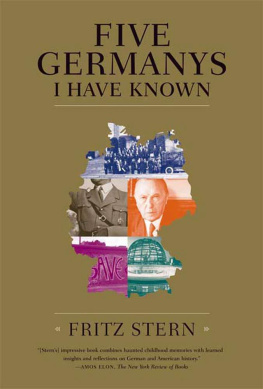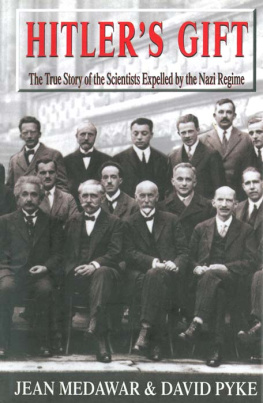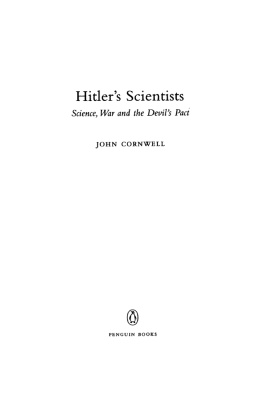Fritz Stern - Einsteins German World: New Edition
Here you can read online Fritz Stern - Einsteins German World: New Edition full text of the book (entire story) in english for free. Download pdf and epub, get meaning, cover and reviews about this ebook. year: 2020, publisher: Princeton University Press, genre: Science. Description of the work, (preface) as well as reviews are available. Best literature library LitArk.com created for fans of good reading and offers a wide selection of genres:
Romance novel
Science fiction
Adventure
Detective
Science
History
Home and family
Prose
Art
Politics
Computer
Non-fiction
Religion
Business
Children
Humor
Choose a favorite category and find really read worthwhile books. Enjoy immersion in the world of imagination, feel the emotions of the characters or learn something new for yourself, make an fascinating discovery.

- Book:Einsteins German World: New Edition
- Author:
- Publisher:Princeton University Press
- Genre:
- Year:2020
- Rating:4 / 5
- Favourites:Add to favourites
- Your mark:
Einsteins German World: New Edition: summary, description and annotation
We offer to read an annotation, description, summary or preface (depends on what the author of the book "Einsteins German World: New Edition" wrote himself). If you haven't found the necessary information about the book — write in the comments, we will try to find it.
The French political philosopher Raymond Aron once observed that the twentieth century could have been Germanys century. In 1900, the country was Europes preeminent power, its material strength and strident militaristic ethos apparently balanced by a vital culture and extraordinary scientific achievement. It was poised to achieve greatness. In Einsteins German World, the eminent historian Fritz Stern explores the ambiguous promise of Germany before Hitler, as well as its horrifying decline into moral nihilism under Nazi rule, and aspects of its remarkable recovery since World War II. He does so by gracefully blending history and biography in a sequence of finely drawn studies of Germanys great scientists and of German-Jewish relations before and during Hitlers regime.
Sterns central chapter traces the complex friendship of Albert Einstein and the Nobel Prize-winning chemist Fritz Haber, contrasting their responses to German life and to their Jewish heritage. Haber, a convert to Christianity and a firm German patriot until the rise of the Nazis; Einstein, a committed internationalist and pacifist, and a proud though secular Jew. Other chapters, also based on new archival sources, consider the turbulent and interrelated careers of the physicist Max Planck, an austere and powerful figure who helped to make Berlin a happy, productive place for Einstein and other legendary scientists; of Paul Ehrlich, the founder of chemotherapy; of Walther Rathenau, the German-Jewish industrialist and statesman tragically assassinated in 1922; and of Chaim Weizmann, chemist, Zionist, and first president of Israel, whose close relations with his German colleagues is here for the first time recounted. Stern examines the still controversial way that historians have dealt with World War I and Germans have dealt with their nations defeat, and he analyzes the conflicts over the interpretations of Germanys past that persist to this day. He also writes movingly about the psychic cost of Germanys reunification in 1990, the reconciliation between Germany and Poland, and the challenges and prospects facing Germany today.
At once historical and personal, provocative and accessible, Einsteins German World illuminates the issues that made Germanys and Europes past and present so important in a tumultuous century of creativity and violence.
Fritz Stern: author's other books
Who wrote Einsteins German World: New Edition? Find out the surname, the name of the author of the book and a list of all author's works by series.









 FRITZ STERN
FRITZ STERN 
